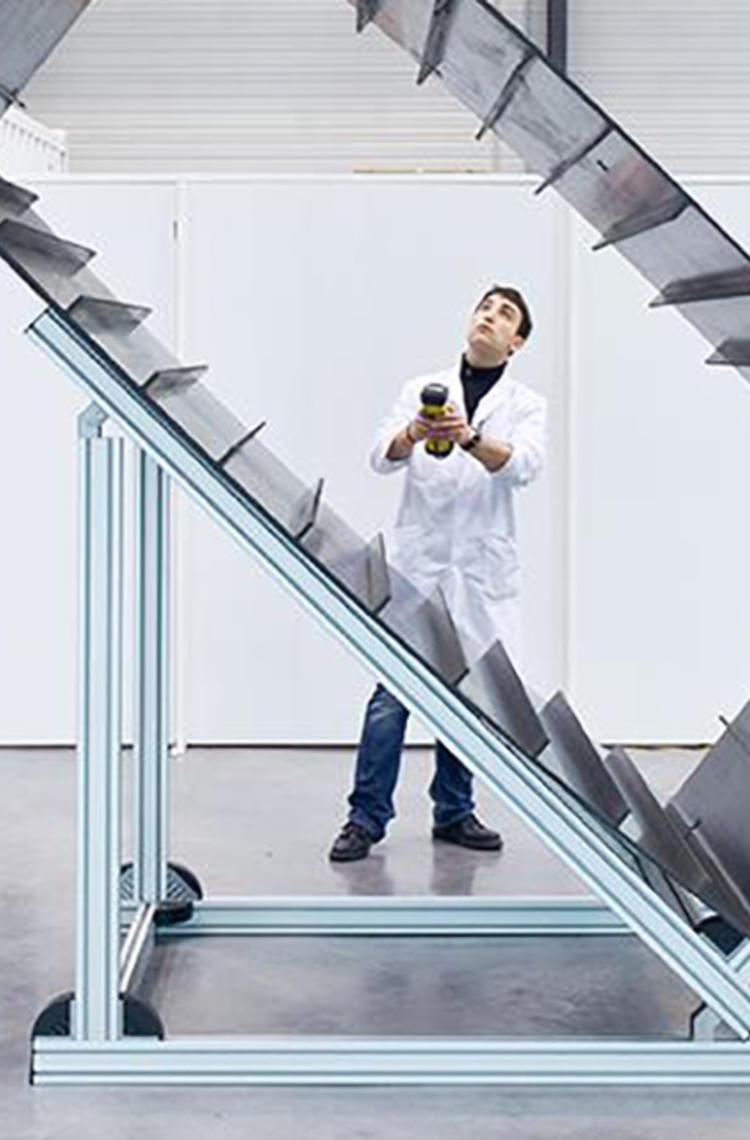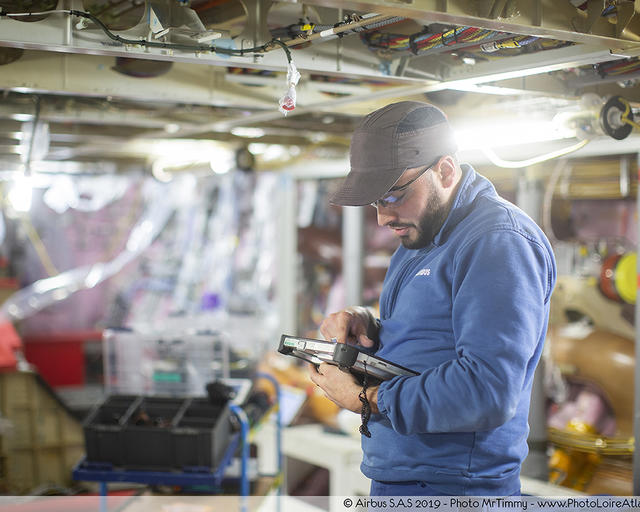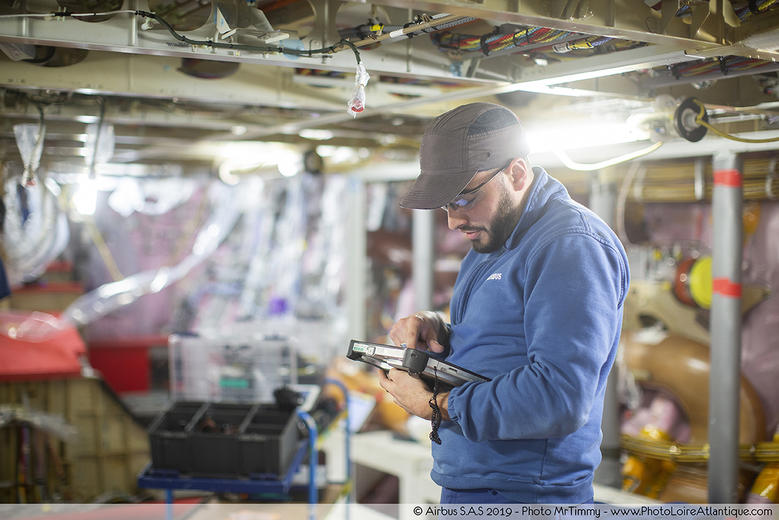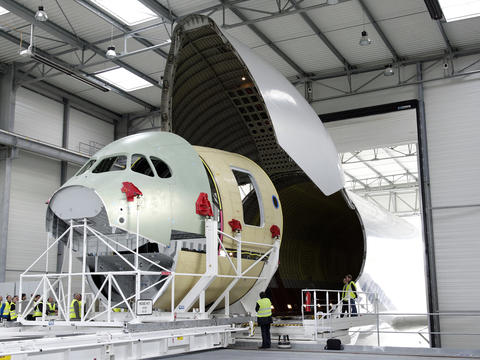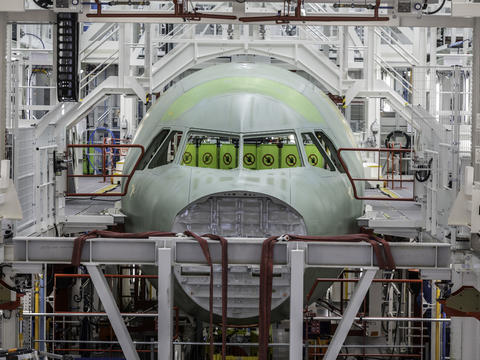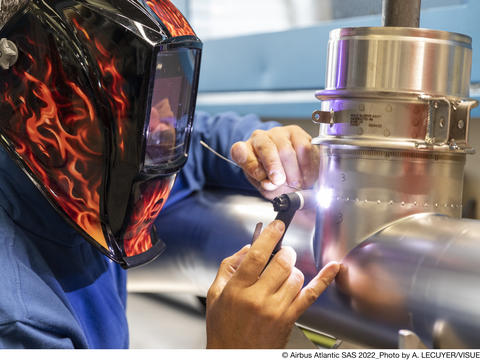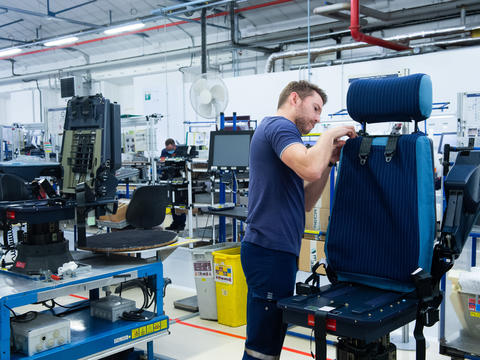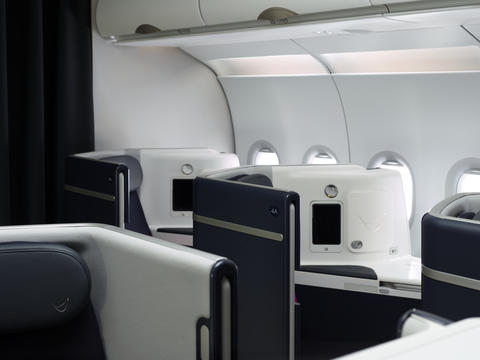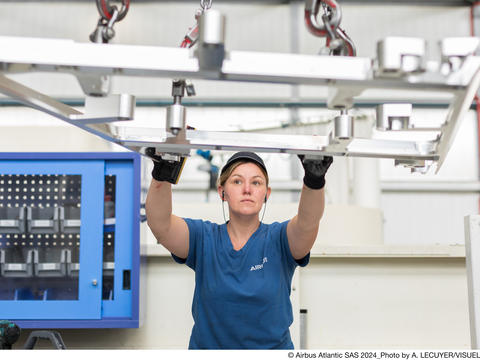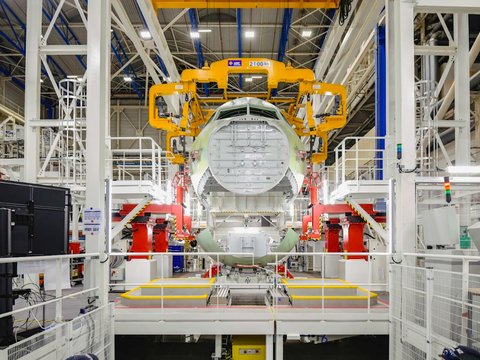Innovation in design and manufacturing
Airbus Atlantic invests long term in its people and in the research resources needed to prepare for the future with high levels of expertise and cutting-edge technologies. Located in all the Group’s main production and engineering facilities in France. The Research and Technology (R&T) department works to develop the future technologies that will keep Airbus Atlantic at the forefront of innovation in design and manufacturing.
The real strength of our Research & Technology commitment is rooted in our teams of passionate engineers and technicians, our network of internal experts and our in-house advanced development resources.
The R&T department has its own laboratories:
The LAB in Méaulte: handling cutting-edge technologies from fiber placement robots to friction stir welding (FSW) and assembly robotics, this laboratory was set up specifically to explore new fields of research and apply them to the design of our aerostructures, systems and Cabin Interior business lines.
The Technocentre in Nantes: the Airbus Atlantic Technocentre is a technological hub providing innovative services related to the implementation of composite assembly technologies, processes and tools.
Main fields of research
Digitalisation
In the frame of its “Industry of the Future" programme, Airbus Atlantic develops solutions for the robotisation and digitalisation of its industrial activities, for continuous gains in productivity, quality and flexibility:
- Real time connectivity between workshops, enabling sharp monitoring of the production, increased collaboration between the different teams and efficient processing of hazards;
- Assistance to workers, using augmented reality solutions enabling immediate comparison between the expected and the achieved as well as improving quality and productivity of operations;
- Collection and extensive use of data associated to Artificial Intelligence algorithms, in order to increase the ability for the teams to analyse and anticipate, in the supply and equipment maintenance fields;
- Use of solutions for robotisation and monitoring of processes through data, by the automation of controls and hazardous, tedious and low-added value operations ;
- Improvement of the performance of the industrial systems and reduction of development cycles, through co-design solutions aimed at taking into account in the early stages of certain key performance criteria of our products and our plants, especially in the environmental field.
